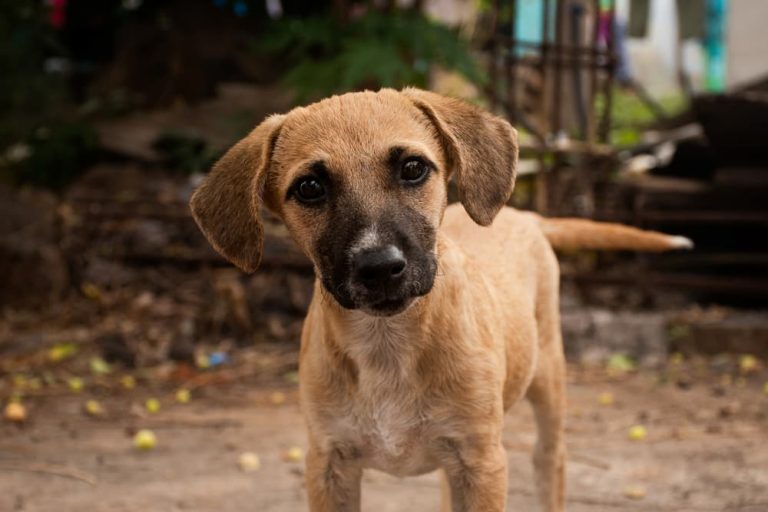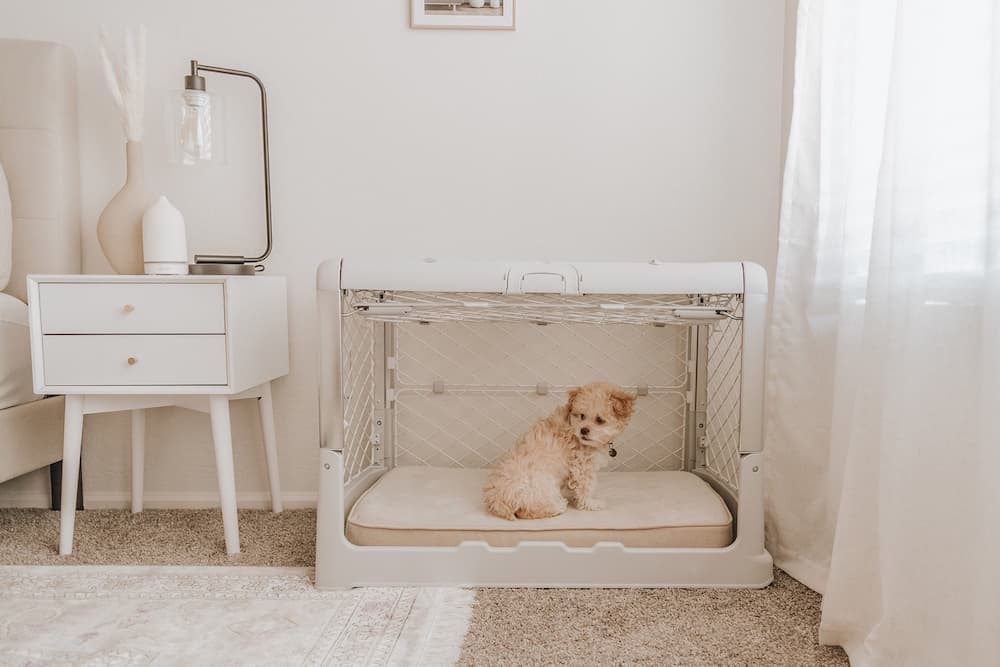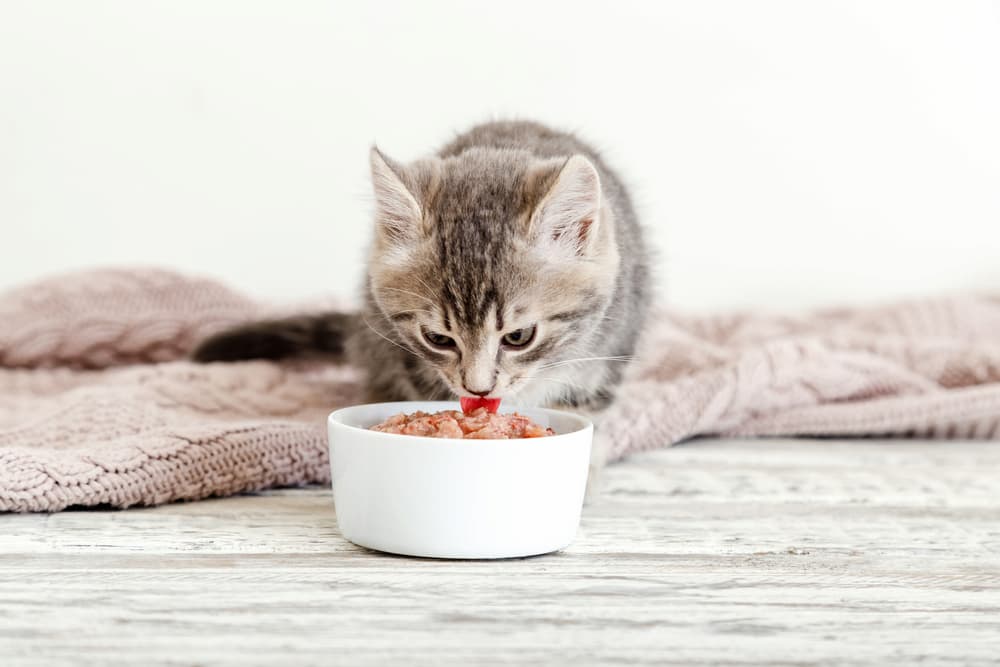What Is a Potcake Dog?

If you are an animal lover, you may have heard the term “potcake dog” mentioned in animal rescue circles or online. But what exactly is a potcake dog and how did the term become popular? Keep reading to learn more about these adorable, adoptable mutts.
What Are Potcake Dogs?
Potcakes are mixed-breed dogs that are mainly found in the Caribbean – particularly on the islands of Turks & Caicos and the Bahamas. These dogs are called “potcakes” because residents used to feed the stray dogs overcooked remains caked at the bottom of the pot of traditional rice and pea dishes.
According to Elizabeth (Tip) Burrows, executive director of the Humane Society of Grand Bahama in Freeport, Bahamas, these dogs have smooth, short fur with very little or no undercoat. Shaggy or rough-coated potcakes are rare. They are recognized by their physical characteristics such as terrier-shaped faces with cocked ears and a hound-like rib cage.
The size of a potcake dog runs the gamut from 35 pounds to about 55 pounds, and they often stand about 24 inches high at the shoulder. However, Burrows has had several potcake dogs over the years that ranged from 30 to 100 pounds. A majority of potcakes are brown in color, but they also come in colors of white, cream, yellow, red and black and can have a brindle pattern. Despite the range of size and coloring, the Bahama’s Kennel Club recognizes the potcake as a breed.
According to Shirley Carroll, President of The Abaco Shelter in Abacos, Bahamas, the original Potcake used to look similar to Golden Retrievers or Labrador Retrievers. However, due to interbreeding, specifically with the Pit Bull terrier breed, who seem to be all the craze in the Bahamas, they are beginning to look like Pit Bull mixed dogs.
There are many stray dogs on the islands in the Caribbean. Each year, their number increases, leaving residents frustrated from having to deal with groups of dogs running around, turning over their garbage cans in search of food, and causing roadblocks and accidents.
However, these loving and loyal potcake dogs have become increasingly popular in the mainland United States and Canada. Rescues and shelters on the islands are working to help the potcake dog breed and rehome as many potcakes as possible with loving families, both on the islands as well as abroad.
Potcake Dog Temperament & Personality

“Potcakes are fantastic animals. They’re hearty. They’re loving. They’re loyal,” says Carroll, who currently has three potcakes and has fostered many in the past. “They all have different personalities, but the bottom line is they’re all very loyal. They can be stubborn at times, like most dogs, but they make great pets.”
A potcake’s temperament depends on the circumstances the dog comes from, says Burrows. “Some may be skittish and timid if they came from the bush or homes where they were not well socialized.” A stable home life, combined with basic training can help them become wonderful pets.
Potcake Dog Rescue Efforts
Rescues like the Abaco Shelter and the Humane Society of Grand Bahama are working tirelessly to help as many stray Bahamian potcake dogs as possible. The major effort undertaken is trying to get them out of the islands, as very few people adopt dogs on the islands.
Because of the logistics involved in the adoption process, rescue groups on the islands work with their counterparts in the United States and Canada, so the dogs have a safety net in the event the adoption falls through, as flying them back to the islands is not an option.
Some of the shelters and rescues the Abaco shelter works with include the Humane Society of Tampa Bay, Peggy Adams Big Dog Ranch, Suncoast Animal League, all in Florida and Mr. Bones & Co. in New York. However, dogs are placed in homes in many destinations, including Florida, the West Coast, and other U.S states as well as provinces in Canada.
Rescues on these islands rely on programs that help fly animals, and in the case of Abaco shelter, second-home owners often try to get the dogs to the U.S. mainland. They are typically flown to Florida where they are either placed in homes there or driven to other locations. The Humane Society of Grand Bahama works with both private pilots and groups such as Wings of Rescue.
On the ground, shelters and rescues try to educate the residents about the importance of spay and neutering, vaccinations and flea and tick medication. In the winter months, where there are more volunteers (snow birds who winter there), Abaco shelter runs free spay and neuter clinics. Volunteers also go to different areas to trap dogs and fix them. “If they’re unowned, and they’re adoptable, we will take them and try to get them adopted,” says Carroll.
Can I Adopt a Potcake Dog?

At this point, you are probably wondering about how to help these wonderful dogs. Adopting a potcake is certainly a great option. The best way to do this is by finding potcake dogs for adoption at a shelter/rescue in your area. You may also choose to help by working with a local rescue to foster a potcake dog until adoption. Some island rescues do adopt out to private individuals; however, this involves significant transportation costs.
Rescues in the islands are always in need of donations, especially monetary ones. “Shipping supplies can be costly for the receiving group due to freight and Customs charges and duties,” says Burrows.
Additionally, the next time you find yourself on an island near an animal shelter, offer to volunteer your time to interact with the dogs and/or take a puppy out for a beach outing. They’ll get to socialize, and you will take home lovely memories, if not an adorable dog.









